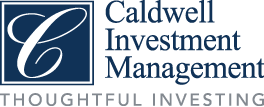Market Overview
Stock markets worldwide were under significant pressure during the month, thanks to a rapid rise in bond yields globally that undercut the appeal of risk assets. This bond market pressure was fueled by lingering uncertainty about the interest-rate policy paths of key central banks, especially the Federal Reserve.
Investors entered August hopeful that the Fed’s rate-hiking cycle was near an end and that the US central bank might begin cutting rates next year amid data suggesting that domestic inflation was slowing materially after 11 rate increases since March 2022. However, this optimism faded after a string of stronger-than-expected reports on the US economy stoked anxiety that upward price pressure remained, potentially forcing the world’s most influential central bank to adopt a “higher for longer” interest rate policy stance.
At the same time that markets were grappling with the risks posed by a resilient US economy, they were confronted with a different set of risks across the Pacific, where investors feared that China’s mounting economic woes could ripple across the broader global economy.
Overall, second-quarter earnings season continued to paint a mixed picture of how inflation headwinds have impacted company profits globally.
Against this backdrop, equity markets in both the developed and developing worlds retreated in August, with the former outperforming the latter. In the US, the S&P 500 recorded its first monthly loss since February, though it still outpaced the broader global index, thanks to strong quarterly earnings results and cautious optimism late in the month that the Fed’s rate-hiking campaign was near an end. Across the Atlantic, the pan-European STOXX 600 index underperformed, weighed down by elevated bond yields and a worsening economic outlook for the eurozone and China, the common currency bloc’s top export market. In Japan, the TOPIX outpaced the broader global index, thanks to strong quarterly earnings results and a weak yen. In China, the Hong Kong-based Hang Seng Index, which is comprised mostly of stocks from the mainland, tumbled on bearish sentiment about China’s deteriorating economic outlook.
Among sectors, utilities was the worst-performing sector in August, as the swift rise of bond yields worldwide hurt high-dividend paying “bond proxy” stocks. Energy was the best-performing sector, as shares of oil producers gained on expectations that Saudi Arabia will extend a voluntary oil production cut into October, thereby tightening supply.
Portfolio Review
From a sector standpoint, the energy and real estate sectors were the top contributors to performance while the industrials and utilities sectors were the top detractors. From a country standpoint, holdings in Japan were the primary contributors on an absolute basis, and in Japan and the US relative to the benchmark index, while exposures in Canada and the UK were the primary detractors from performance on an absolute basis and relative to the benchmark index.
For the month of August, top contributors to performance among the fund’s holdings were: Kansai Electric Power Co. (“9503 JP”,+11.3%; +0.28% contribution), an integrated electric utility company in Japan; Targa Resources (“TRGP US”, +8.1%; +0.26% contribution), a midstream provider of natural gas and natural gas liquids; Energy Transfer (“ET US”, +6.7%; +0.20% contribution), a midstream provider of natural gas and natural gas liquids; Chubu Electric Power Co. (“9502 JP”, +9.5%; +0.18% contribution), an integrated electric utility company in Japan; and Digital Realty Trust (“DLR US”, +8.6%; +0.18% contribution), a leading owner-operator of global data centers and technology-related real estate.
Top detractors from performance for the month of July included: Plug Power (“PLUG US”, -33.7%; -0.40% contribution), a developer of hydrogen systems; Shoals Technologies Group (“SHLS US”, -22.1%; -0.22% contribution), a provider of electrical balance of systems components for solar energy projects; Norfolk Southern Corp. (“NSC US”, -9.3%; -0.19% contribution), a leading US rail operator; and Fortis Inc. (“FTS CN”, -4.7%; -0.16% contribution), an integrated Canadian multi-utility company.
The information contained herein provides general information about the Fund at a point in time. Investors are strongly encouraged to consult with a financial advisor and review the Simplified Prospectus and Fund Facts documents carefully prior to making investment decisions about the Fund. Commissions, trailing commissions, management fees and expenses all may be associated with mutual fund investments. Mutual funds are not guaranteed; their values change frequently and past performance may not be repeated.
Information and opinions presented have been obtained or derived from sources believed by Lazard Asset Management LLC or its afflliates (“Lazard”) to be reliable. Lazard makes no representation as to their accuracy or completeness. All opinions expressed herein are as of the published date and are subject to change.
Allocations and security selection are subject to change. The performance quoted represents past performance. Past performance is not a reliable indicator of future results. Mention of these securities should not be considered a recommendation or solicitation to purchase or sell the securities. It should not be assumed that any investment in these securities was, or will prove to be, profitable, or that the investment decisions we make in the future will be profitable or equal to the investment performance of securities referenced herein. There is no assurance that any securities referenced herein are currently held in the portfolio or that securities sold have not been repurchased. The securities mentioned may not represent the entire portfolio.
Equity securities will fluctuate in price; the value of your investment will thus fluctuate, and this may result in a loss. Securities in certain non-domestic countries may be less liquid, more volatile, and less subject to governmental supervision than in one’s home market. The values of these securities may be affected by changes in currency rates, application of a country’s specific tax laws, changes in government administration, and economic and monetary policy. Emerging markets securities carry special risks, such as less developed or less efficient trading markets, a lack of company information, and differing auditing and legal standards. The securities markets of emerging markets countries can be extremely volatile; performance can also be influenced by political, social, and economic factors affecting companies in these countries.
Securities and instruments of infrastructure companies are more susceptible to adverse economic or regulatory occurrences affecting their industries. Infrastructure companies may be subject to a variety of factors that may adversely affect their business or operations, including additional costs, competition, regulatory implications, and certain other factors.
Certain information contained herein constitutes “forward-looking statements” which can be identified by the use of forward-looking terminology such as “may,” “will,” “should,” “expect,” “anticipate,” “target,” “intent,” “continue,” or “believe,” or the negatives thereof or other variations thereon or comparable terminology. Due to various risks and uncertainties, actual events may differ materially from those reflected or contemplated in such forward-looking statements.
Published on September 18, 2023
-
Troy Syhttps://caldwellinvestment.com/author/troysy/
-
Troy Syhttps://caldwellinvestment.com/author/troysy/
-
Troy Syhttps://caldwellinvestment.com/author/troysy/
-
Troy Syhttps://caldwellinvestment.com/author/troysy/

